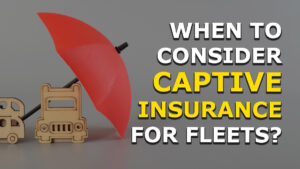
General freight liability coverage minimum must be $1,000,000 instead of FMCSA’s $750,000 minimum and the truck cargo coverage depends on Gross Vehicle Weight (GVW).
Many U.S. carriers look to increase their load opportunities by getting their Canadian trucking authority but are often confused about what is required to meet Canadian guidelines.
Below we break down what is required to obtain a Canadian trucking authority and what truck drivers need to know before crossing the Canadian border.
Obtain a CBSA Carrier Code
What is a CBSA Carrier Code?
CBSA stands for Canada Border Service Agency and is an organization managing the flow of travelers and trade into Canadian territory.
Before hauling freight into Canada, your company must be setup with the Canada Border Service Agency (CBSA) by applying for a CBSA-issued carrier code, a four-character unique identifier used to identify you as a carrier. The Carrier Code will be used in the PARS (Pre-arrival Review System) and carriers must have printed barcodes available to attach to all bill of ladings (BOLs).
To apply for a carrier code, the first step is to determine if you need a non-bonded or bonded code. Bonded highway carriers are permitted to transport in-bond goods beyond the first point of arrival in Canada and between points in Canada.
Enroll for the Free and Secure Trade (FAST) program (not required)
Although not required, carriers can then apply for the Free and Secure Trade (FAST) program, which is a commercial clearance program designed to ensure safety and security while expediting legitimate trade across the Canada-United States (U.S.) border.
This allows carriers to cross the border with accelerated customs and immigration processing.
Dedicated FAST lanes are located at:
- Sarnia, ON / Port Huron, MI
- Pacific Highway, BC / Blaine, WA
- Fort Erie, ON
- Emerson, MB
- Windsor, ON / Detroit, MI
The FAST membership card for drivers is valid for five years and there is a non-refundable $50 FAST processing fee.
Registration and Insurance Requirements
As a carrier, you will then need to add the regions or states you are crossing to your IRP (CAB Card) with the DMV of your state, as well as adding the specific Canadian province/territory that you will be entering to your IFTA permits.
In most cases, a carrier’s liability, cargo, and reefer insurance should cover what you need to cross into Canada. However, the general freight liability coverage minimum must be $1,000,000 instead of FMCSA’s $750,000 minimum and the truck cargo coverage depends on Gross Vehicle Weight (GVW):
- $15,000 minimum for GVW up to 27,998 lbs (12,700 kg)
- $20,000 minimum for GVW up to 46,296 lbs (21,000 kg)
- $27,000 minimum for GVW up to 81,570 lbs (37,000 kg)
- $32,000 minimum for GVW over 81570 lbs (37,000 kg)
Fill out a complete quote or quick quote to get started and one of Commercial Trucking Insurance Specialists will guide you through the remainder of the process.
After you have Canadian Authority, carriers will need to apply to the eManifest portal to electronically transmit cargo and conveyance data to the CBSA a minimum of one hour before the shipment arrives at the border.
For drivers to cross into Canada, they will need:
- A valid passport
- Social Security Card
- A clean commercial driver’s license (CDL)
- If applicable, a FAST membership card
Generally, Canadian hours of service, equipment weight and length requirements match closely with the FMCSA. Any equipment/load that complies with FMCSA regulations in the United States will be legal in Canada. Some jurisdictions require permits for long wheelbase tractors pulling 53-ft trailers. Our partners at Compliance Navigation Specialists (CNS) can advise on any DOT compliance requirements you are unsure of.





